There are other factors that can lead to emaciation in a pig, and not just diet; like our precious Moo, who we lost last fall, declining because her companions bullied her out of her fair share of feed. Appropriate intervention wasn’t sought to remedy her weight loss, such as feeding her separately from her companions. Because of this, her immune system was compromised, and she fell very ill—we were too late in our efforts to save her, even though she fought so hard, and we tried everything in our power to help.
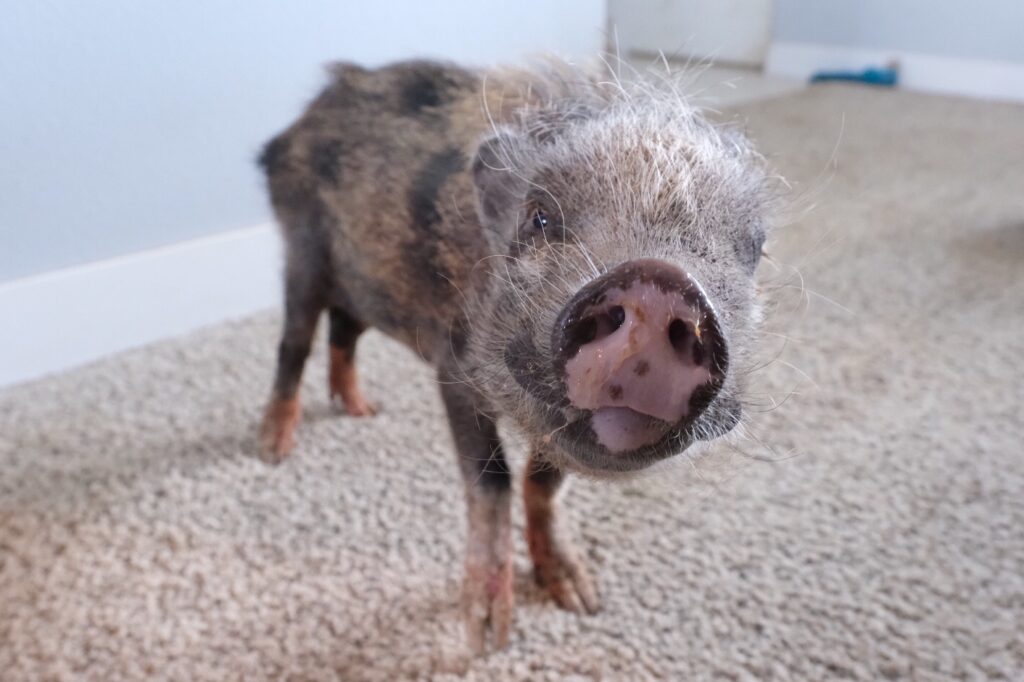
There are other underlying issues, not related to food at all, that can cause weight loss; take our sanctuary resident Morty, for example. He began to lose weight for reasons unknown, and bloodwork revealed low levels in two of his liver enzymes. With supplements and special diet, Morty gained the weight he needed to thrive, and has been happy and healthy since. Other causes for rapid weight-loss, that we recently discovered, are potential auto-immune disorders—totally manageable with medication, supplements and proper care.
When an emaciated pig comes into our care, we have little sympathy for the excuses we hear from previous owners. We hear the gamut of excuses for a pig’s body condition, and often, former owners realize how absurd the excuses are once they verbalize them. If a pig is losing weight, and a diet change with increased feed isn’t helping, veterinary intervention should be sought, period. If the bones of your pig are clearly visible, there’s a problem—seeing ribs, or hip bones, or shoulder bones is not normal and is not healthy. So why do people wait until it’s too late, like the case of Moo, before seeking medical treatment or advice? Why does it suddenly become a rescue’s problem to “fix” the pig?
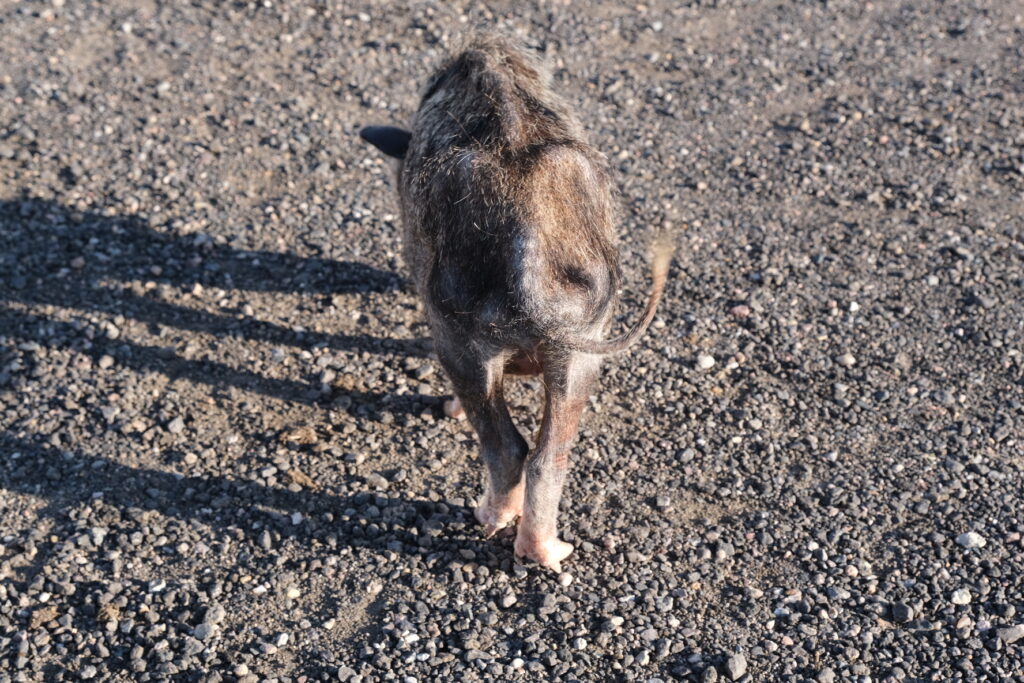
Surrendered for a zoning violation, Phoenix Rose is our most recent addition. Hiding a pig from animal control is not only unfair to the pig, it is highly irresponsible and inadvisable, and we often cannot accommodate pigs in need of a new home for zoning violations. Hog Haven Farm receives an overwhelming number of surrender requests, and has to turn away 95% (though we are always happy to help network pigs in need of a new home). One of our policies with requests is to ask for photographs—this helps us determine approximate size of the pig, and any potential issues that a new home, or the rescue, needs to address. When we received a picture of Phoenix, it was obvious that she was underweight for her age (nearly 6 years). We agreed to help, only because we have plenty of experience rehabilitating underweight or malnourished pigs.
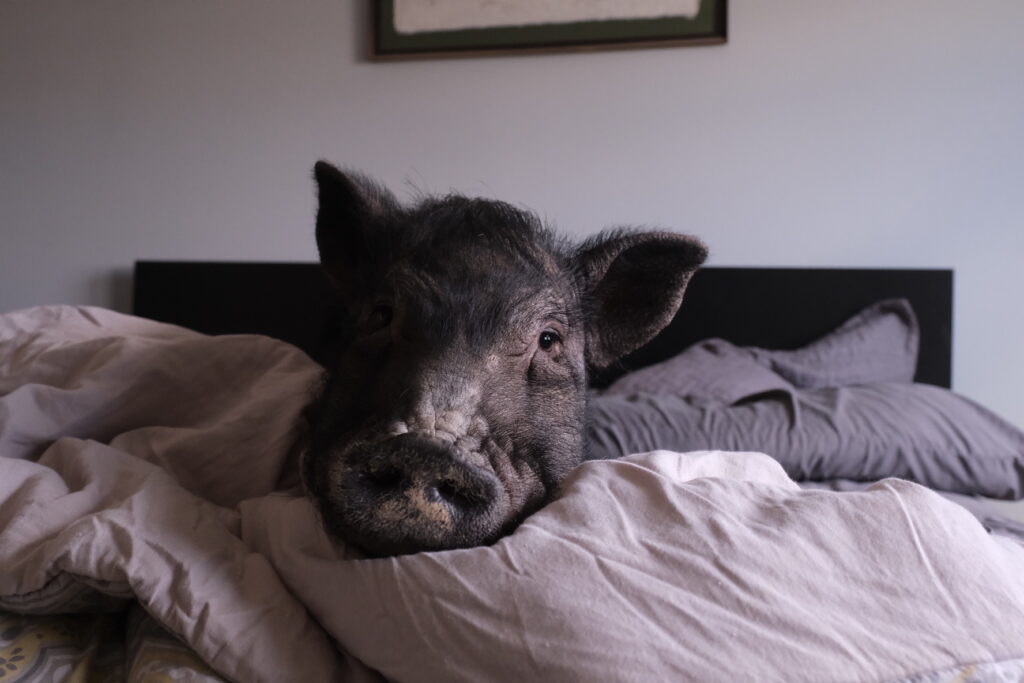
When we saw Phoenix for the first time, it was difficult to maintain a level of professionalism with the transfer of ownership. She is not simply underweight—she is starving. Her hips, shoulders, and ribs are clearly visible. The size of her head, relative to her body, is abnormal. This is not cute; this is not acceptable. Given her height and length, her body weight should be in the 130 to 160lb range; rather, she weighed in at intake a mere 61lbs. Her former owner admitted that she is “thin,” but there’s a big difference between “thin” and “emaciated.” Phoenix’s weight loss was attributed to her spay (more than a year ago), but vet advice should have been sought months ago, if this is the case. While her former owner may have loved her, her body condition is appalling, and the road to recovery will be long. And we feel the same way towards pigs who arrive morbidly obese.
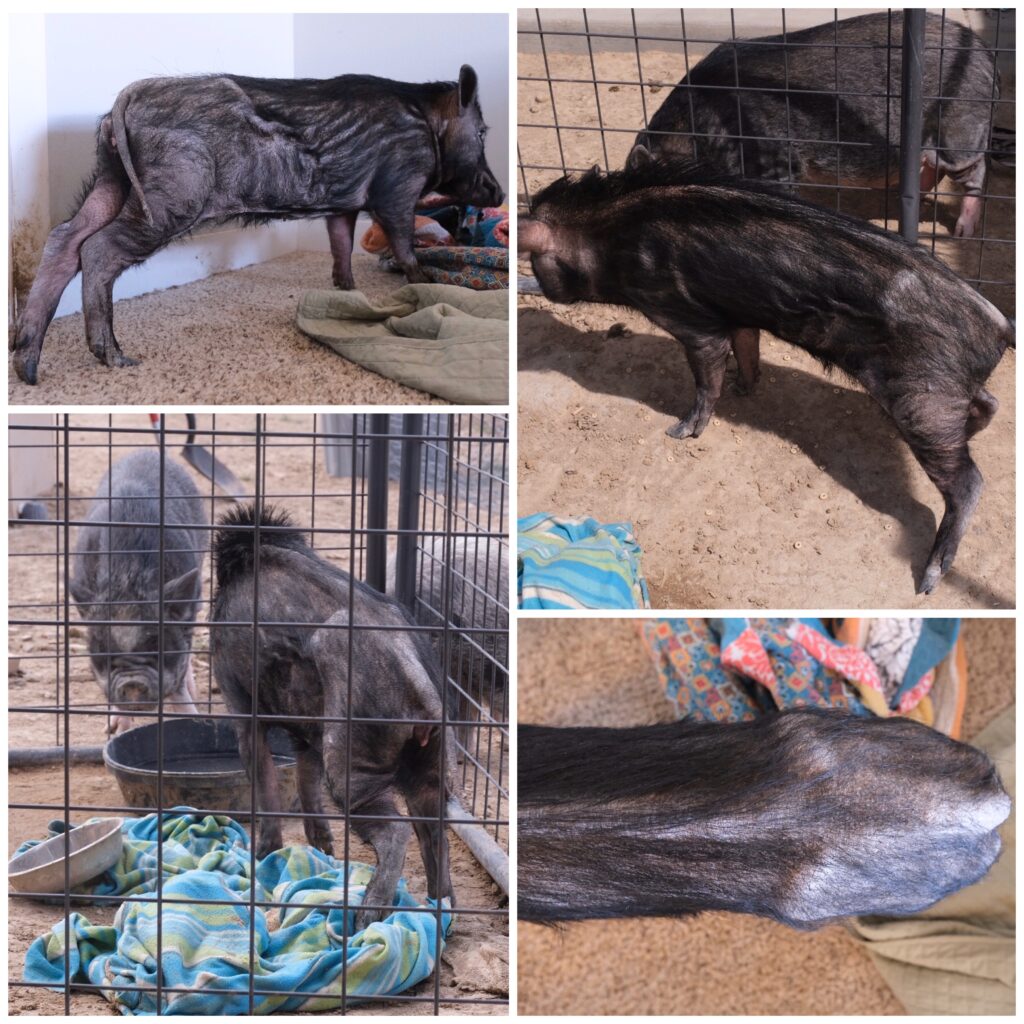
The goal of this post is not to shame Phoenix’s former owner, but to educate current and potential pig parents. Know the signs of weight-loss (or unhealthy weight gain), understand what proper nutrition is for your pig, and know when to seek veterinary help for your pig. If you are unsure, please feel free to contact us! For those wanting to learn more, we encourage you to visit our rescue, and meet pigs of all shapes, sizes, and temperaments. Our smallest adult weighs just over 70lbs, and the largest pigs are in the 700lb range. And if you meet a breeder advising a diet of only ¼ cup pellets a day, run!
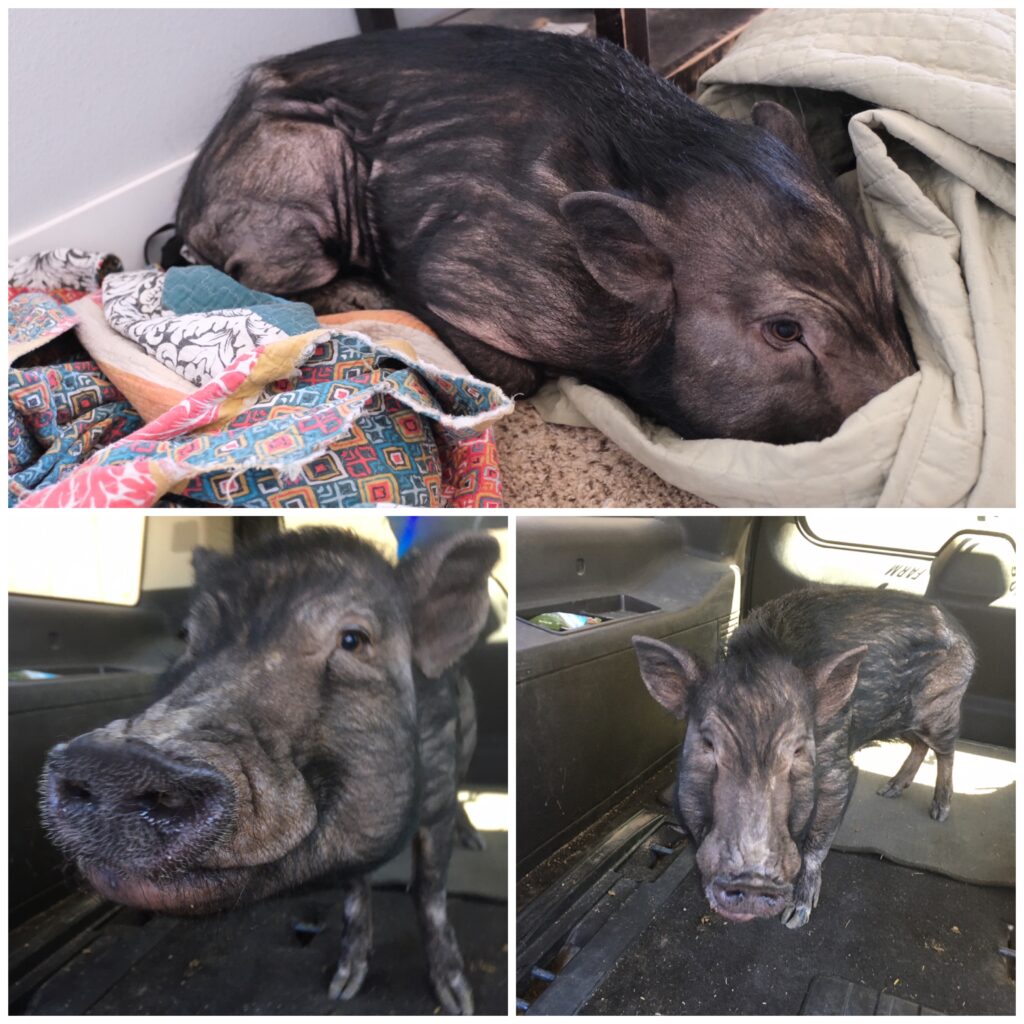
Welcome home, Phoenix Rose. We are so sorry humans failed you, but grateful you found your way to us. You will never be hungry again, and you will always know the comforts of food, safety and love.
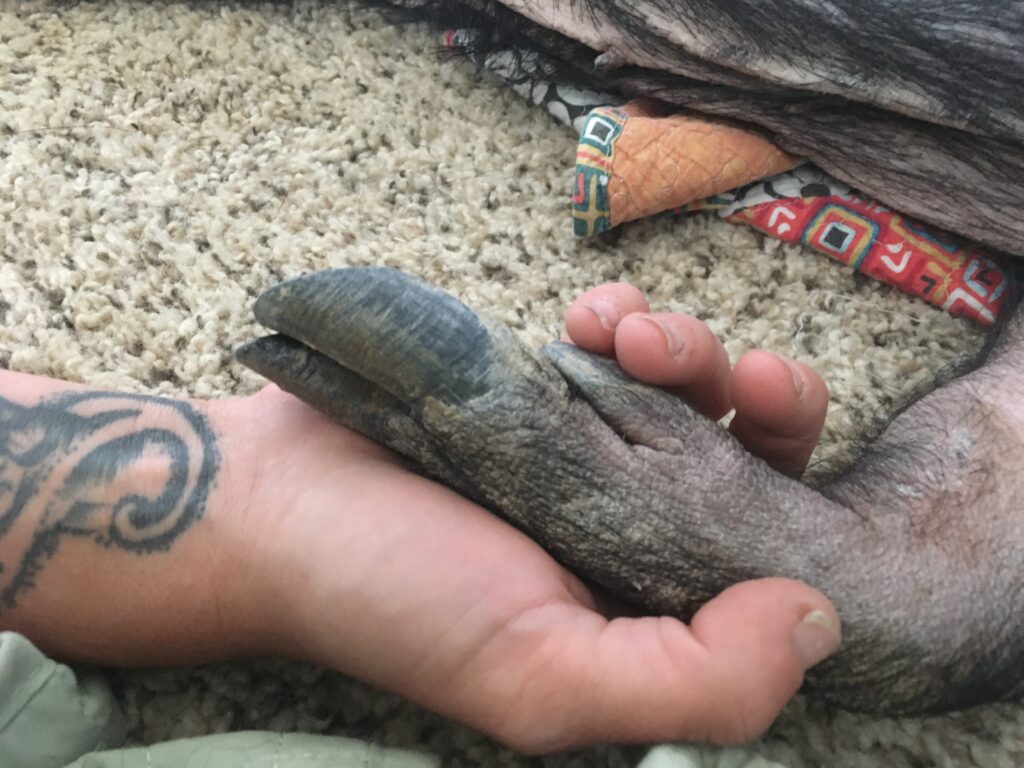
Your donations allow us to continue helping pigs like Phoenix Rose. Please consider a tax-deductible contribution toward our cause, and know your generosity directly supports the 120+ pigs calling Hog Haven Farm their home.
Donate via PayPal
Donate with Venmo
Hola It’s hard to find knowledgeable people on this subject, but you sound like you know what you’re talking about! thank u